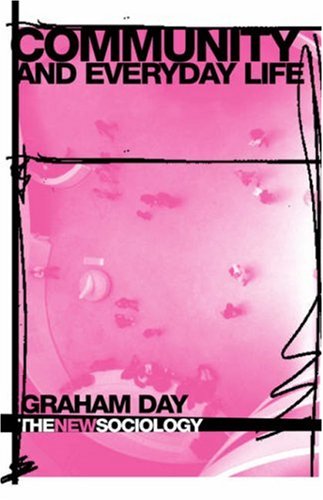

Most ebook files are in PDF format, so you can easily read them using various software such as Foxit Reader or directly on the Google Chrome browser.
Some ebook files are released by publishers in other formats such as .awz, .mobi, .epub, .fb2, etc. You may need to install specific software to read these formats on mobile/PC, such as Calibre.
Please read the tutorial at this link: https://ebookbell.com/faq
We offer FREE conversion to the popular formats you request; however, this may take some time. Therefore, right after payment, please email us, and we will try to provide the service as quickly as possible.
For some exceptional file formats or broken links (if any), please refrain from opening any disputes. Instead, email us first, and we will try to assist within a maximum of 6 hours.
EbookBell Team

5.0
50 reviews'Community' continues to be a persistent theme in political, philosophical and policy debates. The idea of community poses fundamental questions about social inclusion and exclusion, particular versus general interests, identity and belonging. As well as extensive theoretical literature in the social sciences, there is a rich body of social research aimed at exploring the nature of community, and evaluating its contribution to people's lives and well-being. Drawing on a wealth of international empirical examples and illustrations, this book reviews debates surrounding the idea of community. It examines changing patterns of community life and evaluates their importance for society and for individuals. As well as urban, rural and class-based communities, it explores other contemporary forms of community, such as social movements, communes and 'virtual' gatherings in cyberspace.
Truly multidisciplinary, this book will be of interest to students of sociology, geography, political science and social policy and welfare. Grounded in a wide-ranging review of empirical research, it provides an overview of sociological debates surrounding the idea of community and relating them to the part community plays in people's everyday conceptions of identity.